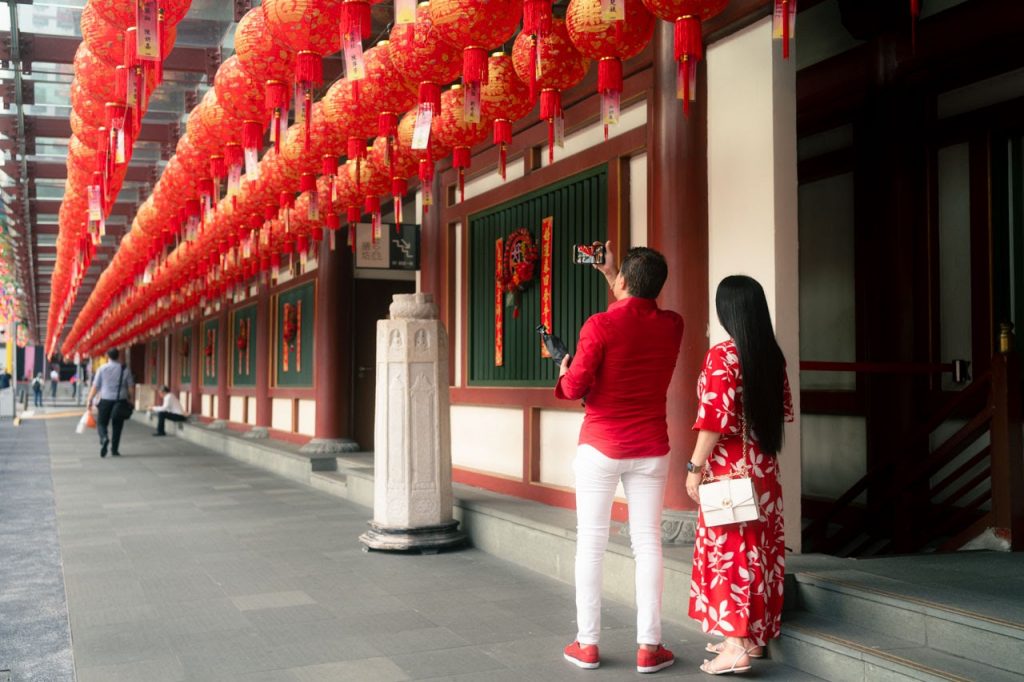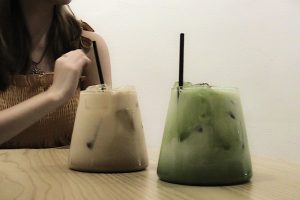Top image: Stephanie Lee / RICE File Photo
In the past few days, I’ve seen the phrase “I wan to lick your vaginal” more times than I would have liked. (The ideal number is zero).
Ever since intimate texts and photos between a married vice principal and his alleged mistress leaked on October 17th, the horrendous flirting is all people have been talking about.
I’ve also been hearing all the sub-par dirty talk Singaporeans have been subjected to. My friend tells me a story about how a guy she was hooking up with leaned in mid-sex and whispered into her ear: “You want me pregnant you?”
Online and in my social circles, the prevailing sentiment is that Singaporean men are unsexy, bad at sex, and, now, atrocious at dirty talk.
But it can’t just be Singaporean men. It takes two to tango, after all, and it was a woman who said those perennial words: “Then I will do it loh.”
The real problem is with Singlish because Singlish is the unsexiest language in existence.
But what is it about Singlish, exactly? Why does the patois that most of us use every day—and love— take us from wet and hard to dry and limp?

Unsexy Expressions
For one, Singlish is far too blunt to be sexy.
Singaporean English is brutalist because we’re impatient people. We don’t want use many word when few do trick. It works in professional settings when time is of the essence, but it’s a terrible way to do dirty talk.
Think about what makes good dirty talk. It’s just an endless stream of rhetorical questions. Dirty talk means purple-prosing your intimate conversations.
Instead of saying, “I want that”, you say: “Do you know what I want? Do you know what I really want?”
It’s very inefficient.
Good dirty talk is everything that Singaporeans are not—patient, inefficient, and lazy—and so we skip prosaic dirty talk meant to excite the mind and stiffen the groin. We go straight to demanding: “Want or not”?
Productivity culture has us in such a chokehold that we send our lovers post-date minutes and schedule flings for “after PSLE“.
But Singlish’s unsexiness goes beyond the pragmatism of people who speak it. Buffing the prose that we use in dirty talk may not save it because Singlish already sounds unsexy.
Singlish’s Unsexy Rhythms
Singlish is different from other dialects of English at a very basic level because we talk in a different rhythm. Linguists say Singlish has a ‘staccato’ quality. It’s ‘syllable-timed’, which means that every syllable is given the same time and emphasis when spoken. Other dialects of English, like American and British English, are ‘stress-timed’, where some words are stressed, and some syllables are shortened to accommodate that stress.
We also talk very fast, something that my American exchange student friends picked up on. One says: “You people talk like you’re running out of time to live.”
Magazine columnists will tell you that half of what makes sex good is the anticipation (which is also why post-nut clarity is a thing, by the way). Anticipation is built up in dirty talk—it’s lazy, languid words that serve to make the situation that much more sensual. It’s hard to build the same anticipation with Singlish’s machine-gun rhythms.
But that can’t be the sole determinant. French is a notoriously fast language and it’s also syllable-timed, but it’s still considered an erotic language. At least, it’s a lot more erotic than Singlish because I can name a dozen sensual scenes from French cinema, but I can’t seem to find any here.
The Language of Comedy
It also doesn’t help that we don’t really see Singlish being used in sensual contexts. In fact, the opposite is true because Singlish and the Singaporean accent are played for laughs in local media. Whether it’s in a Jack Neo movie or on local YouTube skits, we just don’t really see Singlish outside of comedy.
That’s right: representation matters.
When a character wanders onto screen with a thick Singaporean accent, it’s easy to figure out what role they’ll play. They probably won’t be the protagonist or the protagonist’s love interest. Odds are they’re a sidekick.
Juxtaposing a character’s heavy Singaporean accent against the rest of the cast—who probably have that affected Mediacorp accent that isn’t quite angmoh but isn’t Singaporean either—is an easy way to denote that they’re meant to be the comic relief character.
It’s a crutch the media industry leans on. Yeah, it’s lazy, but it works.
And it means that we don’t associate Singlish with being sexy. It’s good for a laugh, but it’s a real boner killer.
How Do We Make Singlish Sexier?
So, are Singaporeans actually bad at dirty talk, or is the problem with Singlish?
Likely answer: Both.
But there has to be something we can do. I asked around the office about how we could make Singlish sexier, and after some discussion, we agreed that:
1) We can’t dismiss Singlish as a dialect or ridicule it; to cut each other off from our local patois is counterproductive to lexical development.
2) We need to use Singlish every day; not just in comedic settings, but in erotic contexts, too, to maintain contact with it.
3) We need to update the way we use Singlish with each other; we can take the time to speak slower and build the anticipation that makes for good dirty talk–and it’s important that we do it for our sexual partners without the other party asking.
4) We should try to speak Singlish more often so we get comfortable with using it in sexual contexts–at least twice a week, regardless of the duration.
Ok bo?






